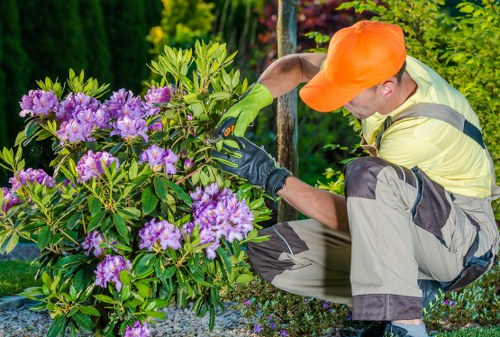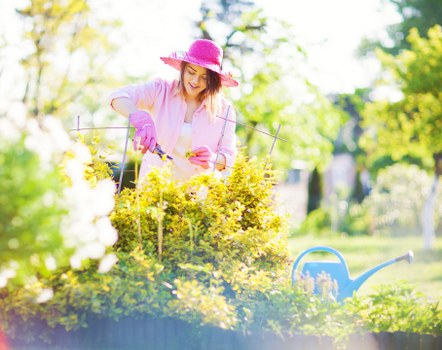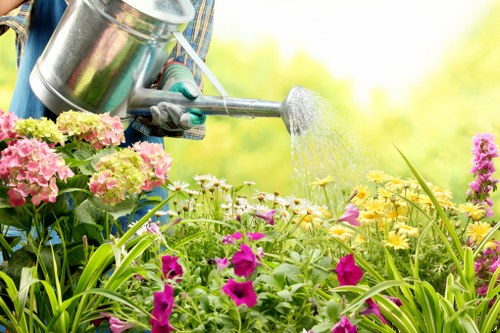Comprehensive Guide to Garden Fence Replacement in Sands End

Replacing a garden fence is a significant decision for homeowners in Sands End. Whether you're looking to enhance the privacy of your garden, improve security, or simply update the aesthetic appeal of your property, understanding the process and options available is crucial.
In this guide, we will walk you through the essential aspects of garden fence replacement, including the types of fences available, the installation process, maintenance tips, and how to choose the right professional for the job.
We understand that replacing a fence can be both exciting and overwhelming. Our aim is to provide you with clear, concise information to help you make informed decisions that best suit your needs and budget.
Why Replace Your Garden Fence?

There are several reasons why a garden fence may need replacement. Over time, fences can suffer from wear and tear due to weather conditions, vandalism, or simple aging. Replacing your fence ensures that your garden remains secure, visually appealing, and functional.
Additionally, updating your fence can enhance the overall value of your property. A well-maintained fence contributes to the curb appeal and can make your home more attractive to potential buyers if you decide to sell.
Moreover, newer fence materials and designs offer better durability and require less maintenance, providing long-term benefits and peace of mind.
Common Signs It's Time to Replace Your Fence

- Visible rot or decay in wooden fences
- Loose or broken panels
- Rust spots on metal fences
- Increased drafts or security concerns
- Outdated design no longer matching the property
Identifying these signs early can help you avoid more significant issues down the line and ensure that your garden remains a safe and beautiful space.
Regular inspections and maintenance can prolong the life of your fence, but replacement becomes necessary when damage is extensive or when you desire a different look or functionality.
Types of Garden Fences Available

Sands End homeowners have a variety of fencing options to choose from, each with its own set of benefits. Understanding the different types can help you select the best fit for your garden.
Wooden Fences: Traditional and versatile, wooden fences offer a natural look that blends seamlessly with garden environments. They can be customized in various styles, such as picket, lattice, or horizontal slats.
Metal Fences: Including options like aluminum, wrought iron, and steel, metal fences are known for their strength and durability. They require less maintenance and are ideal for security purposes.
Vinyl Fences

Vinyl fences are a low-maintenance alternative that mimic the appearance of wood without the associated upkeep. They are resistant to pests, rot, and fading, making them a practical choice for many garden settings.
Available in a range of colors and styles, vinyl fences can add a modern touch to your garden while providing privacy and security.
The Fence Replacement Process
- Assessment: Evaluate the current fence condition and determine the necessary repairs or complete replacement.
- Selection: Choose the type of fence that best suits your needs, budget, and aesthetic preferences.
- Planning: Measure the area, obtain any necessary permits, and create a timeline for the project.
- Removal: Carefully dismantle and remove the existing fence, taking care to minimize damage to your property.
- Installation: Install the new fence according to the manufacturer's guidelines or industry best practices.
- Finishing: Add any final touches, such as painting, staining, or landscaping around the fence.
Each step requires careful attention to detail to ensure that the new fence is installed correctly and will serve your garden well for years to come.
Hiring a professional for fence replacement can streamline the process and ensure that all aspects are handled efficiently and effectively.
Choosing the Right Professional
Selecting a qualified and experienced fence installer is crucial for a successful replacement project. Here are some tips to help you choose the right professional in Sands End:
- Experience: Look for installers with a proven track record in fence replacement and a portfolio of completed projects.
- Licensing and Insurance: Ensure that the contractor is properly licensed and insured to protect against any potential issues.
- References: Ask for references or read reviews from previous clients to gauge the quality of their work.
- Quotes: Obtain multiple quotes to compare pricing, services, and value offered.
- Communication: Choose a professional who communicates clearly and is responsive to your questions and concerns.
Investing time in selecting the right professional can save you time, money, and stress in the long run, ensuring that your garden fence replacement meets your expectations.
Additionally, a reputable contractor will provide guidance on the best materials and designs to suit your specific garden needs.
Maintenance Tips for Your New Fence
Once your new garden fence is installed, proper maintenance will extend its lifespan and keep it looking its best. Here are some maintenance tips to consider:
- Regular Inspections: Periodically check your fence for any signs of damage or wear, addressing issues promptly.
- Cleaning: Remove dirt, debris, and vegetation that can accumulate on or around the fence.
- Paint or Stain: Apply protective coatings to wooden fences to prevent rot and enhance appearance.
- Lubrication: For metal fences, lubricate hinges and movable parts to ensure smooth operation.
- Repairs: Fix any loose or damaged panels, posts, or hardware to maintain the fence's integrity.
Consistent maintenance not only preserves the functionality of your fence but also enhances the overall beauty of your garden.
Taking proactive steps can prevent minor issues from escalating into more significant problems, saving you time and money in the future.
Cost Considerations
The cost of garden fence replacement in Sands End can vary widely based on several factors. Understanding these factors can help you budget appropriately:
- Material: Different materials come with varying price points. For example, wooden fences may be less expensive upfront but require more maintenance, while vinyl or metal fences might have higher initial costs but offer greater durability.
- Size: The total length and height of the fence will impact the overall cost. Larger gardens will require more materials and labor.
- Design: Custom designs or intricate patterns can increase costs compared to standard styles.
- Labor: Hiring professional installers adds to the cost but ensures quality and efficiency.
- Permits: Depending on local regulations, you may need permits for fence installation, which can add to expenses.
Obtaining multiple quotes and comparing prices can help you find the best value for your garden fence replacement project.
Additionally, consider the long-term benefits and maintenance costs when selecting materials to ensure that your investment is worthwhile.
Local Regulations and Permits
Before embarking on a garden fence replacement project in Sands End, it's essential to be aware of local regulations and permit requirements. These regulations ensure that fences comply with community standards and do not infringe on neighbors' properties.
Key considerations include:
- Height Restrictions: Local ordinances may dictate the maximum allowable height for fences.
- Boundary Lines: Ensure that your fence is placed within your property boundaries to avoid disputes.
- Material Restrictions: Some areas have guidelines on the types of materials that can be used for fences.
- Setback Requirements: There may be rules regarding how far a fence must be from the street or sidewalk.
Consulting with your local council or a professional installer can provide clarity on the specific requirements in Sands End.
Complying with these regulations not only avoids legal issues but also promotes good relations with your neighbors.
Environmental Considerations
In today's world, environmental sustainability is an important factor to consider when selecting materials for your garden fence. Opting for eco-friendly materials can reduce your environmental footprint and contribute to a healthier ecosystem.
- Sustainably Sourced Wood: Choose wood from certified sustainable sources to ensure responsible forestry practices.
- Recycled Materials: Fences made from recycled metals or plastics help reduce waste and promote recycling.
- Non-Toxic Finishes: Use natural or low-VOC paints and stains to minimize harmful chemical emissions.
- Durable Materials: Selecting long-lasting materials reduces the need for frequent replacements, conserving resources.
By considering the environmental impact of your fence replacement, you can make choices that are both aesthetically pleasing and environmentally responsible.
Additionally, incorporating sustainable practices aligns with broader community efforts to promote environmental stewardship in Sands End.
Enhancing Your Garden's Aesthetic
A stunning garden fence can serve as a focal point, enhancing the overall aesthetic of your outdoor space. Here are some ideas to elevate the look of your garden with your new fence:
- Decorative Finials: Adding finials to the top of your fence can provide a touch of elegance and sophistication.
- Climbing Plants: Incorporate climbing plants like ivy, roses, or clematis to add natural beauty and green coverage to your fence.
- Lighting: Install outdoor lighting along your fence to create a warm and inviting ambiance in the evenings.
- Color Coordination: Choose colors that complement your garden's palette to create a harmonious look.
- Custom Designs: Incorporate patterns or unique designs to make your fence stand out and reflect your personal style.
Thoughtful design choices can transform a simple fence into a beautiful and integral part of your garden landscape.
Personalizing your fence not only boosts aesthetic appeal but also makes your garden feel more welcoming and unique.
10-15 Nearby Areas to Sands End for Fence Replacement
Residents of Sands End have several nearby areas where they might seek garden fence replacement services. Each area offers its unique characteristics and proximity to Sands End:
- Fulham Located just north of Sands End, Fulham offers a mix of residential properties requiring modern and traditional fencing solutions.
- West Kensington Known for its vibrant community, West Kensington residents often look for stylish and sturdy fence replacements.
- Battersea South of Sands End, Battersea homeowners seek durable and secure fencing options to complement their expansive gardens.
- Clapham Common: With its large green spaces, residents of Clapham Common prioritize eco-friendly and visually appealing fences.
- Hammersmith This bustling area adjacent to Sands End values high-quality fence installations that enhance property value.
- Chelsea Known for its elegant residences, Chelsea requires premium fencing materials and bespoke designs.
- Putney Putney homeowners favor versatile fencing options that balance functionality with aesthetic appeal.
- Tower Hamlets A diverse area near Sands End, residents here seek a range of fencing styles to match their unique garden settings.
- Wandsworth With its family-friendly neighborhoods, Wandsworth emphasizes safety and durability in fence replacements.
- Shepherd's Bush: Urban gardeners in Shepherd's Bush prefer compact and stylish fencing solutions for smaller garden spaces.
- Earls Court: Earls Court residents look for sophisticated fencing options that align with the area's historic architecture.
- South Kensington: High-end properties in South Kensington demand luxurious and custom fence designs.
- Holland Park: Known for its lush gardens, Holland Park homeowners opt for natural and harmonizing fence materials.
- Palace Gate: This area values top-notch fencing services that maintain the aesthetic integrity of elegant homes.
- Kensington: Kensington's prestigious properties require fencing solutions that are both secure and stylish.
Each of these nearby areas to Sands End offers unique opportunities and requirements for garden fence replacement, allowing homeowners to find the perfect fit for their specific needs.
Understanding the characteristics of each area can help you choose the right fencing style and materials that complement your garden and property.
Conclusion
Garden fence replacement in Sands End is a worthwhile investment that enhances the security, privacy, and aesthetic appeal of your property. By understanding the types of fences available, the replacement process, and the importance of selecting the right professional, you can ensure a successful and satisfying outcome.
Consider the local regulations, environmental impacts, and maintenance requirements to make informed decisions that align with your long-term goals. With careful planning and execution, your new garden fence will serve as a beautiful and functional boundary for your outdoor sanctuary.
Whether you're updating an aging fence or installing a new one to complement your garden's design, Sands End offers a wealth of options and expert services to meet your fencing needs.
Frequently Asked Questions
1. How long does it take to replace a garden fence in Sands End?
The duration of a garden fence replacement project in Sands End depends on factors such as the size of the fence, the type of materials used, and weather conditions. On average, most projects can be completed within a few days to a week.
2. What is the most durable fencing material for gardens?
Metal fences, particularly those made from steel or aluminum, are among the most durable options. They resist weathering, require minimal maintenance, and can provide long-lasting security and privacy.
3. Do I need a permit to replace my garden fence in Sands End?
Permit requirements vary depending on local regulations and the specifics of your project. It's advisable to consult the local council or a professional installer in Sands End to determine if a permit is necessary for your fence replacement.
4. How can I maintain my new garden fence?
Regular maintenance includes inspecting for damage, cleaning the fence, applying protective coatings to wooden fences, lubricating metal parts, and promptly repairing any issues. Proper maintenance will extend the lifespan and appearance of your fence.
5. Can I install a garden fence myself, or should I hire a professional?
While DIY installation is possible, hiring a professional ensures that the fence is installed correctly and efficiently. Professionals have the expertise, tools, and experience to handle various challenges, resulting in a higher quality and longer-lasting fence.